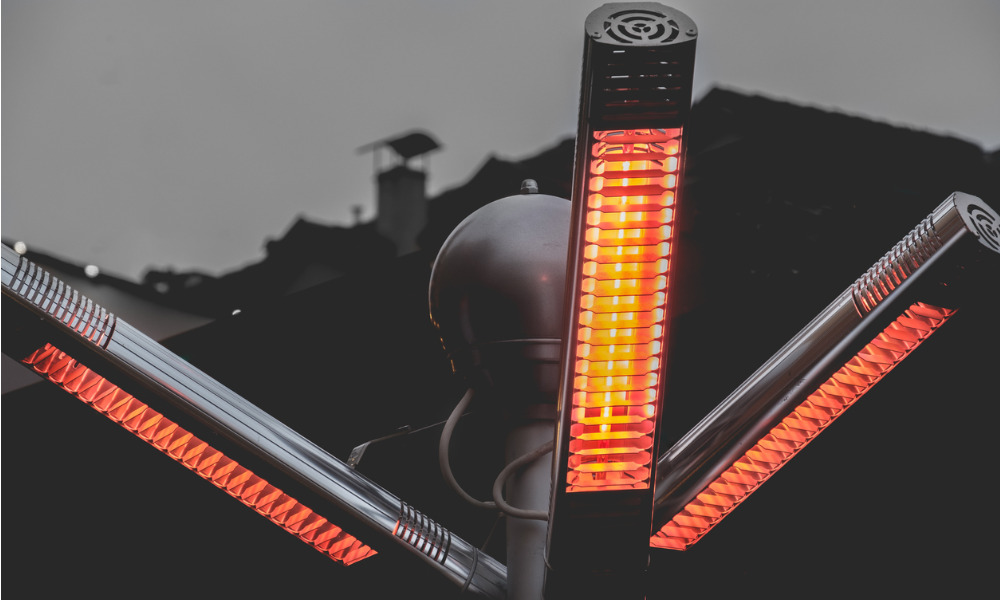‘If you intend to enclose your outdoor space and supply supplementary heat using propane or natural gas units, you must consider the risk of carbon monoxide exposure’

Using an outdoor heater in an enclosed space can put workers at risk of exposure to carbon monoxide (CO), and employers must know how to minimize this risk to workers and customers, according to WorkSafeBC.
During the COVID-19 pandemic, restaurants, bars, and other dining venues have been opening patio or outdoor seating for patrons in order to increase distancing and take advantage of natural ventilation. And as the weather becomes colder, employers may wish to enclose these outdoor spaces and supply heat using space or portable heaters, thus making the risk of CO exposure to workers and customers bigger.
CO is a toxic, odourless, invisible gas that comes from incomplete combustion of any carbon-containing material. interferes with the ability of blood to carry oxygen to tissues, most importantly the brain. Symptoms of CO poisoning include headache, feeling very tired, nausea, confusion and dizziness.
Other symptoms may include shortness of breath, chest pain and lack of coordination. And these effects become more severe the longer you are exposed and may lead to collapse, coma, and death at the highest CO concentrations.
At risk
Restaurants, bars, or other outdoor dining venues with unventilated enclosed outdoor spaces that use a separate heating system may be at risk. “If you intend to enclose your outdoor space and supply supplementary heat using propane or natural gas units, you must consider the risk of carbon monoxide exposure,” said WorkSafeBC.
The best way to reduce the risk of exposure to CO when heating enclosed outdoor spaces is to use electric heaters, rather than natural gas or propane.
WorkSafeBC noted that, when considering heating an outdoor dining space, employers should do the following:
- Avoid using gas or propane heaters. Most manufacturers state that these heaters should never be used in an enclosed area.
- Design dining space carefully.
- Avoid completely enclosing the space. Too little natural ventilation will increase the risk of transmission of the virus.
- Position the walls in order to avoid a “wind tunnel” effect. Too much ventilation may carry droplets containing the virus toward others.
- Make sure you include proper fire and electrical safety measures (e.g., keep heaters away from combustible materials and exits).
The agency added that enclosing outdoor spaces also reduces natural ventilation. This increases the risk of worker and patron exposure to SARS-CoV-2, the virus that causes COVID-19.
Patio heaters can also pose a danger if they are not installed, operated and maintained correctly, according to the Technical Standards & Safety Authority (TSSA), the Ontario Association of Fire Chiefs (OAFC) and the Canadian Propane Association.





